- Home
- Especially for Fishing Boat Owners
Saltwater Fishing Boats
Which One’s Right for You?
Choosing a craft from the hundreds of different types of saltwater fishing boats available, both new and second-hand, can be a daunting task.
Particularly for the prospective first-time boat owner there’s a real danger of the heart ruling the head, and ending up with the wrong boat.
It really is worth doing some serious soul searching before you part with a serious wedge of your hard-earned cash.
This article is intended to help you avoid the pitfalls of buying a new or used fishing boat, so that you can find the boat that meets your individual requirements perfectly. Read on!
Finding the 'Right' Saltwater Fishing Boat
Here are a few things you might want to consider first:~
- Would a boat that’s small enough to be transported on a trailer best suit my lifestyle, and if so is my car capable of towing it safely?
- If so, where will I be able to launch it?
- If it’s not trailerable or I want to leave it afloat for the season, where can I berth it at a reasonable cost?
- Where can I store it ashore during the off-season?
- Can I get insurance for it at an affordable premium?
- Do I have the skill to maintain it myself, or will I have to employ a boatyard professional?
- And what about hull material? What are the benefits and disadvantages of a GRP (Glass Reinforced Plastic) hulled fishing boat over an aluminium fishing boat?
- And hull shape? Deep V, shallow V, cathedral hull or maybe even a catamaran fishing boat?
- How long will it take to get out to my favourite fishing marks, and how much fuel will it use?
- And finally, powered by inboard or outboard motors?
Types of Saltwater Fishing Boats
So you know what type of saltwater fishing boat is best for you. Odds are it will be one of these:~
- A small fishing boat of the traditional kind for inshore fishing, capable of being kept on a trailer and towed behind the family car;
 A small trailerable
A small trailerablefishing boat
- A centre console fishing boat, similarly capable of being kept on a trailer and towed behind the family car, but with more fishing space and greater hull speed;
 A small centre-console
A small centre-consolefishing boat
- Along the same lines, an inflatable fishing boat - often known as a RHIB (a Rigid Hulled Inflatable Boat);
- A sport fishing boat suitable for fishing further offshore, and needing a four wheel trailer and a 4x4 SUV to tow it;
- Getting really serious now, an offshore fishing boat for extended trips over the horizon in search of large ocean gamefish
Hull Shapes
- Displacement Hulls ~ The term 'displacement' relates to the volume
of water displaced by the hull, the weight of which is equivalent to the
all-up weight of the boat. Unlike planing hulls, of which the following
three are all examples, displacement hulls don't 'unstick' and rise up
and skim across the surface of the water when maximum power is applied.
These hulls provide a comfortable, sedate ride when under way but roll noticeably when at anchor. They have a maximum speed in relation to their length which no amount of additional power can overcome. - Deep Vee Hulls ~ You can really get going in one of these. Although
they're not wonderful performers at slow speeds, once the throttle has
been opened sufficiently to 'unstick' them they plane readily.
Speed is no longer related to the length of the hull, effective displacement is reduced (there's much less of the hull in the water), surface friction decreases, the motor can be throttled back and fuel consumption decreases. Unlike the next hull shape, deep vee hulls slice through the waves - they don't slam. OK, so I'm a fan. - Cathedral Hulls ~ These come up on the plane very easily, even more
readily than the deep vee hulls. But they slam heavily when being driven
into seas - so much so that the helmsman is often forced to throttle
back. Then, at low speed, they fall into displacement mode - and they're
then very poor performers.
But at anchor, they don't roll very much at all which makes them very popular with anglers - in good conditions that is. But when the going gets tough ... - Catamaran Hulls ~ Providing these are built with a pair of slim
hulls, rather than wide ones optimised for maximum accommodation, they
can be propelled quickly and comfortably through the water with moderate
power.
At anchor they are super-stable, which together with their expansive deck area makes them very popular with charter sea anglers as all-round saltwater fishing boats.
Afloat at Last!
So you've got your own saltwater fishing boat - you're free! Well, not quite ...
With this freedom comes responsibility. There are new skills to master and always more knowledge to gain, the most important of which are those associated with safety at sea:~
- The safety equipment and accessories for saltwater fishing boats, all of which are required to make the whole experience pleasurable - and above all, safe;
- Boat handling skills, as in getting on and off the mooring and close-quarters manoeuvring in the marina, as well as handling the large seas that you'll sooner or later encounter offshore;
- Knowing where you are and the course to steer to get to your intended destination - navigation.
- A thorough understanding of how tides work, how they'll influence your navigational decisions and how to use them to your advantage;
- Familiarity with nautical charts and knowing just what all those symbols and abbreviations mean;
- Understanding the various types of anchors for saltwater fishing boats and the type of seabed they’re best suited for;
- Knowing how to get your anchor to hold, when you really need it to;
- Knowing where to find wind and weather information, and understanding how to interpret the data;
- knowing the correct knot for any particular application - the reef knot, bowline, clove hitch, rolling hitch, round turn and two half hitches, rolling hitch etc - and how to tie them.
All of this can be summed up in one word - Seamanship.
But seamanship is far too big a subject to be dealt with properly on a website like this one about saltwater fishing - but there's this book Seamanship for Sea Anglers. which covers the subject thoroughly.
So if you're a fishing boat owner and feel that you really ought to know more about seamanship and navigation, I would urge you to read it.
Recent Articles
-
Sea Fishing Rods and Reels Must Be Compatible for a Balanced Outfit
Mar 08, 21 08:30 AM
A quality reel fitted to a quality rod doesn't necessarily make it a quality outfit. Your fishing rods and reels have to be properly matched if you're to get the best out of them, and here’s how -
Essential Lure Fishing Tips That All Saltwater Anglers Should Know
Mar 08, 21 04:51 AM
Which single lure fishing tip applies to trolling, jigging, baitcasting, spinning, fly fishing and any other branch of lure fishing? Well, it is the one at the top of this list -
Vital Jig Fishing Tips That You Really Cannot Afford To Miss!
Mar 07, 21 10:20 AM
Essential jig fishing tips to help you select the right lure for successful jig fishing, together with the techniques required to get the most out of your jig fishing outfit
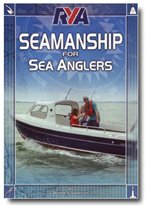
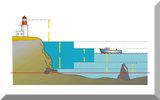
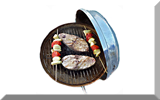
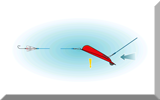
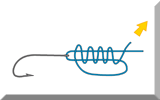

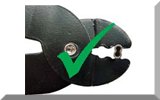
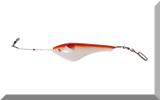
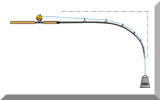
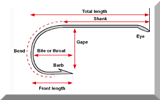
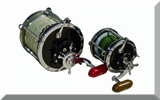
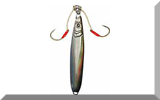
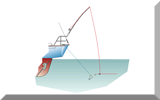
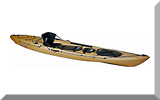
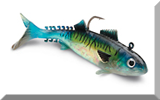
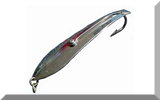
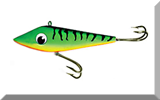
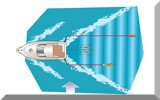
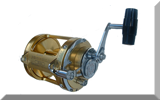
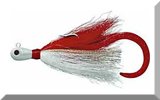
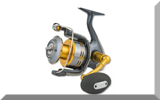
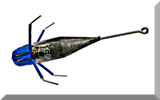
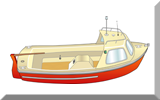
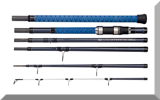
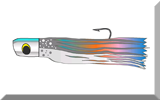
New! Comments
Have your say about what you've just read! Leave me a comment in the box below.